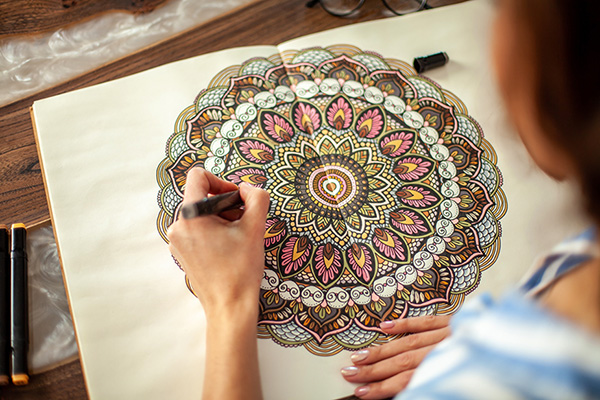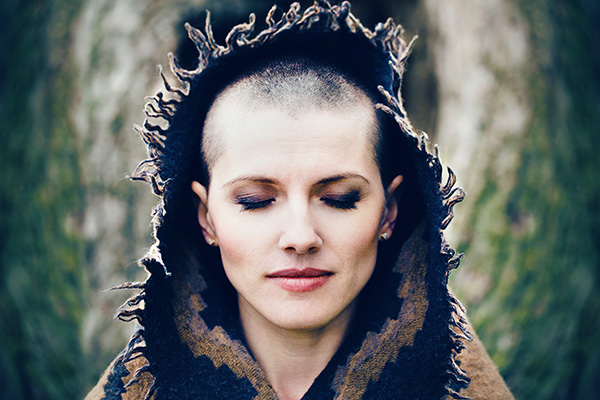selflessness
Setting Healthy Boundaries With Toxic People
 I have often wondered why so many of us tolerate unhealthy, unhappy, and sometimes very dysfunctional relationships with relatives and friends. Too many of us endure the toxic dynamics in our families and friendships, putting up with being the scapegoat, emotional punching bag, financial provider, free therapist, or nanny.
I have often wondered why so many of us tolerate unhealthy, unhappy, and sometimes very dysfunctional relationships with relatives and friends. Too many of us endure the toxic dynamics in our families and friendships, putting up with being the scapegoat, emotional punching bag, financial provider, free therapist, or nanny.
Why is it that many of us tend to keep giving the people in our lives second chances and multiple opportunities to learn and grow, hoping that they will somehow become more considerate, loving, and compassionate?
Meanwhile, we ignore their nasty words, spiteful behaviors, and toxic exchanges. We remain kind, tolerant, and patient. We try to help them lighten up, or connect on a deeper, more caring level. We hope that maybe someday everyone will be happier together and enjoy sharing more love and belonging, instead of dysfunction and drama.
But as the years go by, they continue to disappoint, abuse, and betray us. The loving kindness and mutual support never comes. Try as we might in these toxic situations, the people we love and care about will continue to talk down to us or try to make us feel that we are not good enough. These complicated family and friendship situations can eventually cost us our physical and mental health, our financial security, and our personal accomplishments.
I find this to often be the case with my clients who are gifted, empathic, highly sensitive, and spiritually aware. Some even consider it their purpose or calling in this lifetime. However, while being a wounded healer or earth angel is certainly a noble calling, being a scapegoat or doormat is definitely not! God, Source, Spirit, the Divine wants us to be happy, healthy and safe, and to live our best life.
Empaths And Endings
 Anger is one of the most difficult emotions for the empath to navigate, and the ending of a relationship is definitely one of the most challenging of all.
Anger is one of the most difficult emotions for the empath to navigate, and the ending of a relationship is definitely one of the most challenging of all.
Any relationship that falls apart is tough, but if you are an empath you may well find yourself trying to navigate some very overwhelming waters. Not only will you be feeling your own pain, anger and confusion, but you will also sense your partner’s feelings, and possibly even that of your families and mutual friends.
Trying to make sense of all these emotional energies, staying centered and sorting out your own feelings separate from your partner’s is a very tall order.
Chances are you have also been sensing that something had been radically amiss for some time, before your love finally went on the rocks. It is important to take time to look back and remember when you first sensed something was off. Empaths are often aware of their partner’s moods and feelings, and may act on it too prematurely. Pushing too soon can result in the partner shutting down, or insisting that nothing is wrong. The problem is, however, that an empath will feel that something is wrong and will not be able to shake that feeling. You knew something was wrong… and you were right!
It is critical that you shift your focus away from your partner and towards taking care of yourself. Allow your emotions to flow. An empath is always going to be more focused on the other party’s actions, reactions and feelings. You automatically link in to them instead of you. To move through this painful experience you must shift your focus and concentrate on you.
Left Holding The Bag
 One of my clients recently said, “I’m the one left holding the bag.” Have you ever been ‘left holding the bag?’ This is when you are put in a situation where you are unfairly held responsible, because other people fail or refuse to take responsibility.
One of my clients recently said, “I’m the one left holding the bag.” Have you ever been ‘left holding the bag?’ This is when you are put in a situation where you are unfairly held responsible, because other people fail or refuse to take responsibility.
The expression “left holding the bag” originated in 18th-century Britain, but at the time it referred to a person being caught with stolen goods, while the rest of their criminal gang escape responsibility.
Many of us are left holding the bag at some point in our life. This is especially true for empaths, healers and highly sensitive people. They are often the scapegoat in their family, or the friend who is taken advantage of, or the coworker who has to pick up the pieces when others neglect their duties.
The solution for this is often found in spiritual self-empowerment, inner child healing, energy shielding, or simply the setting of boundaries. These are challenges I often assist clients with.
A client was about to purchase a bed and breakfast establishment with the support of an investor. When the day came to sign the papers, the investor decided it was just too much to deal with at the time. This left my client ‘holding the bag,’ having to find a new investor.
Another client was abandoned by her siblings when their mother’s mental and physical health suddenly began to deteriorate, and she was left to her own devices having to care for her mom with no assstance or support from the rest of the family.
Judgment Limits Your Soul Growth
 So, let’s try a different attitude just for today – just so we can experience what it’s like to exist on a higher spiritual frequency and how good it feels to be connected to God, Source, Spirit, Higher Intelligence, the Divine.
So, let’s try a different attitude just for today – just so we can experience what it’s like to exist on a higher spiritual frequency and how good it feels to be connected to God, Source, Spirit, Higher Intelligence, the Divine.
To help bring yourself into spiritual alignment and to be a healthier, happier human being, mentally, psychically and spiritually, simply let go of analyzing and evaluating others. The only reason we do this is usually because we are trying to cover up the misalignments in our own life.
When we constantly criticize and judge ourselves and others, we are essentially keeping ourselves trapped in a life on low, shallow energy altitudes. Hence we hinder our soul from achieving wonderful growth.
Some of the unhealthiest, most miserable people I know tend to always judge. They constantly feel the need to analyze and pass judgment on others, and what is worse they often judge themselves much more severely! I mean, if you can’t see it in their aura, you can definitely see it in their face. The eyes are indeed the windows to the soul.
When we have sincere faith in a higher power we simply do not feel the need to constantly judge ourselves and others. When we judge others we only hurt and limit ourselves. Judgment, intolerance and fear hinder our soul growth. So, just for today try a less judgmental attitude. You just might like it! You may even find it’s better to live this way every single day for the rest of your lifetime.
Life is simply too short and precious to spend it indulging in so much judgment and negativity. So, stop blocking yourself from being the best version of you. Do not analyze and evaluate yourself and leave others in peace to deal with their own karma.
Using The Mandala In Your Spiritual Practice
 Years ago, I taught a class on sacred geometry. My favorite section of the class was related to using mandalas as a tool for the inward journey and I would like to share this practice with you.
Years ago, I taught a class on sacred geometry. My favorite section of the class was related to using mandalas as a tool for the inward journey and I would like to share this practice with you.
When using a mandala as a form of meditation you begin by creating a large circle. I have always found it easier to start with a graph based on concentric circles, but others start with just a circle and their imagination or intuition. Start at the outer edge of the circle to begin your session and work your way around the outer edge. Gradually work your way to the center of the mandala – this represents the inward journey.
We start by creating patterns and designs on the outside of the circle. This is the largest part of the circle and represents the universe. Understanding the expansiveness of the universe we can feel very small and insignificant, so it is important to move inward to find our grounding within the cosmos.
As we move inward in our mandala we contemplate our planet, then our country or large group of people we identify with the most. For many people this can be a religious tradition. We then move to contemplating our acquaintances, family, and friends.
Towards the center many mandala meditators will create four sides, or a square that leads to the center of his or her mandala. These four sides represent the four cardinal points, South, West, North, and East.
The Key To Happiness Is Self-Care
 The most important thing we can do in life is to take good care of ourselves, because this is the only way we can truly be of service to others. Although this may seem counterintuitive, to be most effective we must take some time to put ourselves first and treat ourselves with more love and kindness. The demands of family, friends, career, business and our community are absolutely necessary to attend to, but the gift of self-care must also be given to ourselves.
The most important thing we can do in life is to take good care of ourselves, because this is the only way we can truly be of service to others. Although this may seem counterintuitive, to be most effective we must take some time to put ourselves first and treat ourselves with more love and kindness. The demands of family, friends, career, business and our community are absolutely necessary to attend to, but the gift of self-care must also be given to ourselves.
People tend to believe they have no time for proper self-care. This is often because they have too many unnecessary, self-assigned duties on their plate. There is no point in worrying about all the things that one cannot effectively change. Some issues should be left to sort themselves out over time. Others are not worth the effort or stress in the greater scheme of things.
The trick is to tell the difference between what is within our control and truly our responsibility, and what can be disregarded or delayed. We must prioritize the issues that matter most, and focus our energy on what we can solve or change. This frees up time for taking better care of yourself.
Regardless of how simple or extravagant our self-care activities might be, it is vital to feel that there is a mini-escape from the pressure-ridden demands of our life. For example, whether it is a quick stretch, or a solid workout, keep your body moving to the best of your ability. It doesn’t take long to feel revitalized, so make the most of whatever time you have.
